Scaffolding Grit

This article makes the case for rethinking ideas about grit and growth mindsets in the classroom. “Grit”, made popular in the education realm by Angela Duckworth’s research, in simple terms means the perseverance of effort over the long-term. The author makes the argument that everyone has the potential to be “gritty”, but it must be cultivated… Read More ›
Goodbye ABCs: How One State is Moving Beyond Grade Levels and Graded Assessments

This article explores the No Grades, No Grades (NG2) program in New Hampshire, where seven elementary schools are participating in a pilot, slowly moving away from both traditional age-based grouping of students into grades and assessment based on letter grades. Instead the schools are embracing the following 6 tenets: project-based learning, learner agency, whole person development, blended learning… Read More ›
Levers2Learn
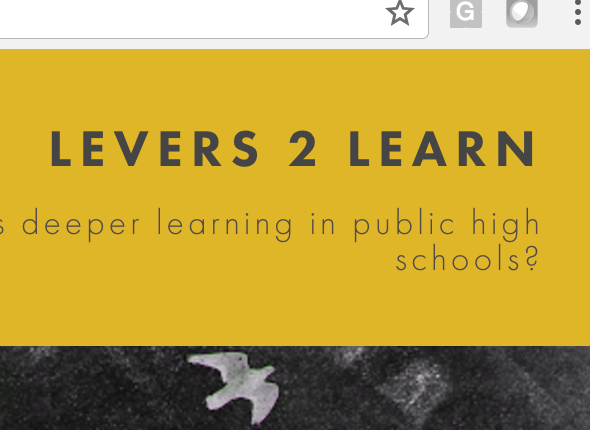
Levers2Learn is a web-based research report which shares findings on barriers to, and enablers of, deeper learning in high schools. The Business Innovation Factory Student Experience Lab (SXL) and The Hewlett Foundation interviewed educators from the Deeper Learning Network which brings together more than 500 public and charter schools dedicated to providing deeper learning experiences nation-wide. Throughout the report short video clips of… Read More ›
Online Courses for Credit Recovery in High Schools
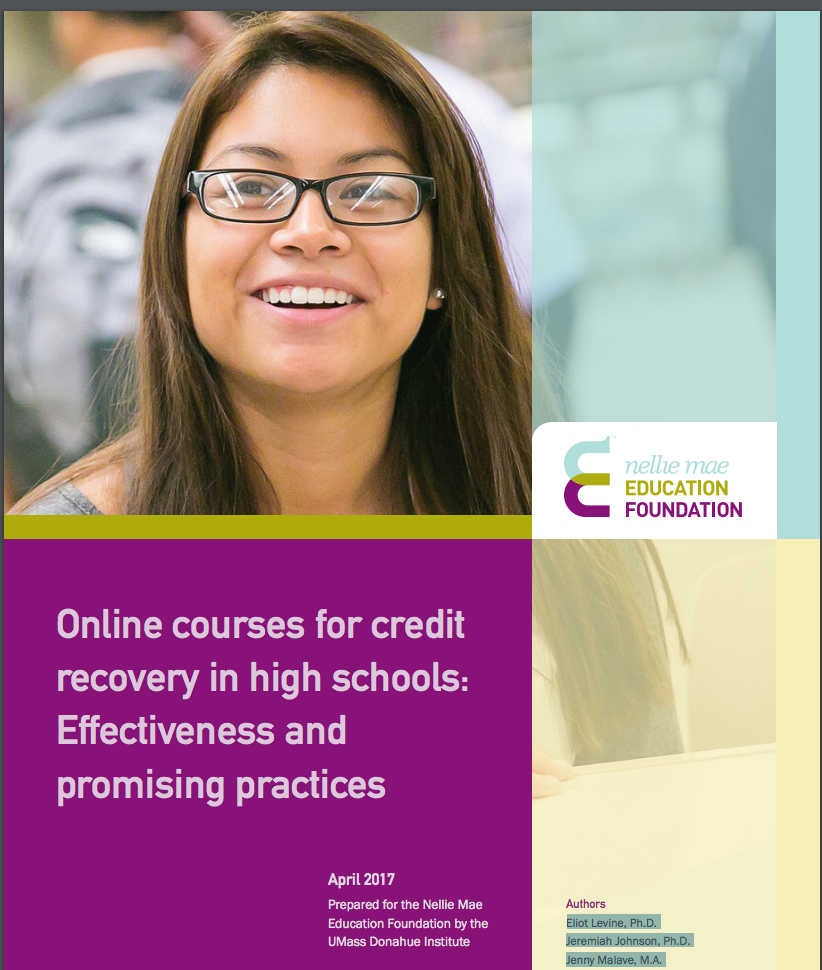
This report, prepared by The University of Massachusetts Donahue Institute for the Nellie Mae Education Foundation (NMEF) examines promising practices for online credit recovery programs. These programs help underserved students achieve a diploma through a more personalized approach with the flexibility to work anytime and anywhere and progress based on mastery. This report draws on a study of… Read More ›
Student-Focused Learning in Springdale, Arkansas
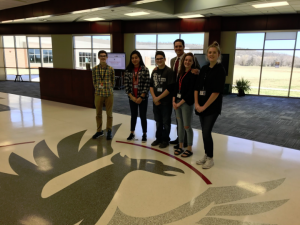
This four-part blog series from CompetencyWorks, explores the exemplary student-centered work in the Springdale School District, in Arkansas. The articles explore innovations happening in the district, and many lessons, challenges, and learnings that might inspire other district and school leaders and educators. The final blog of the series provides a student perspective. Using student’s own words,… Read More ›
Lessons from a Social Studies Teacher: The Power of Interdisciplinary Work in a Competency-Based School

This blog shares tips for getting the most out of the student-centered practice of interdisciplinary projects. The author first shares the leadership and professional development structure that allows interdisciplinary work to thrive, then explores what makes interdisciplinary work worthwhile for students. She describes how this mode of learning can increase motivation and engagement; build 21st-century skills,… Read More ›
Technology Counts 2017
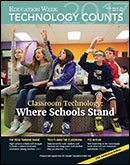
Technology Counts 2017: Classroom Tech: Where Schools Stand is Education Week’s 20th annual report on education technology. The report’s feature story reveals concern that technology is not being used to its full potential in K-12 schools across the country. It points to continued gaps in access to broadband networks and inadequate teacher training which raise… Read More ›
The MyWays Initiative
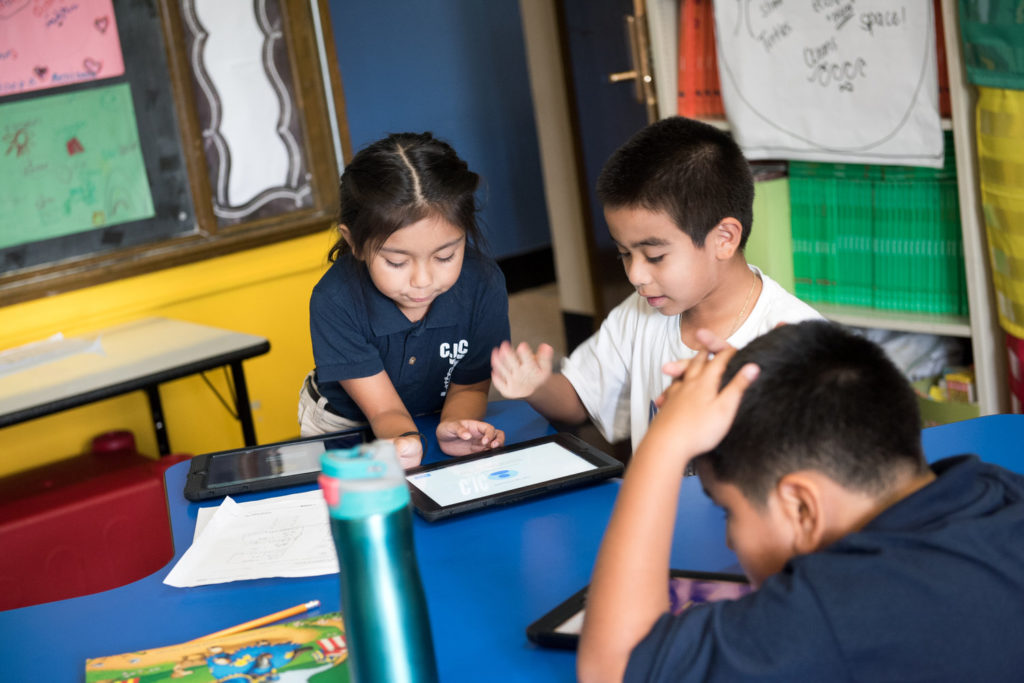
MyWays is an initiative of Next Generation Learning Challenge (NGLC). It is an effort to synthesize a broader, deeper definition of student success: success for learning, working, and living in the fast-changing world facing today’s youth. The initiative seeks to help school communities address big questions in education today by: Fully understanding why a changing world requires reimagining… Read More ›
The Crucial Factor in School Success is School Culture (Part 1 of 3)
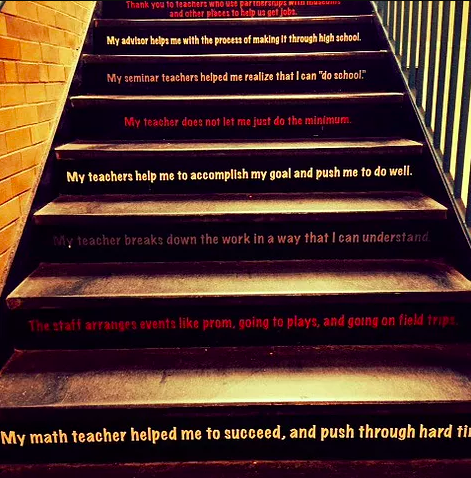
Transforming schools: the key ingredient is right in front of us. School reform is more than incorporating tech tools, being competency-based, or implementing student-centered practices. It’s more than opening the walls or focusing on core competencies. School reform starts by transforming school culture, and reforms flourish when we allow adults to be creative and compassionate… Read More ›
Skills for Today: What We Know about Teaching and Assessing Collaboration
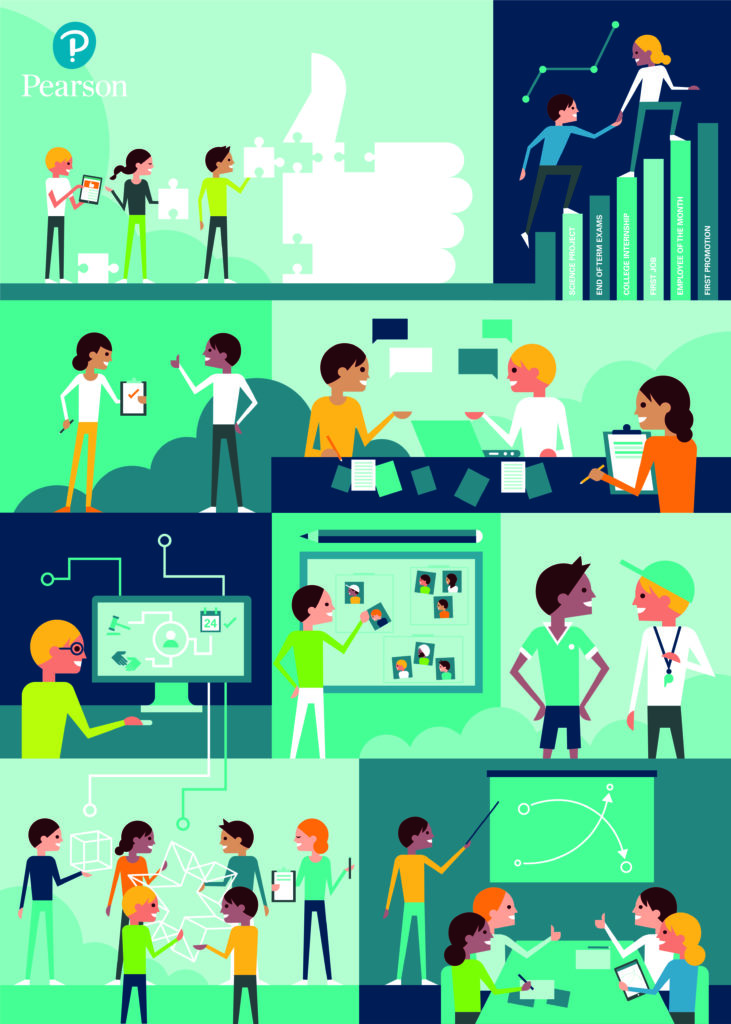
This literature review from researchers at Pearson and Partnership for 21st Century Learning (P21) explores existing research on the importance of collaboration skills, as well as how to teach and assess these skills in K-12 and higher-education classrooms. The review examines research on successful k-12 and higher ed interventions to increase collaboration and teamwork skills. Techniques for assessment of… Read More ›
CCE Culturally-Responsive Teaching Resources
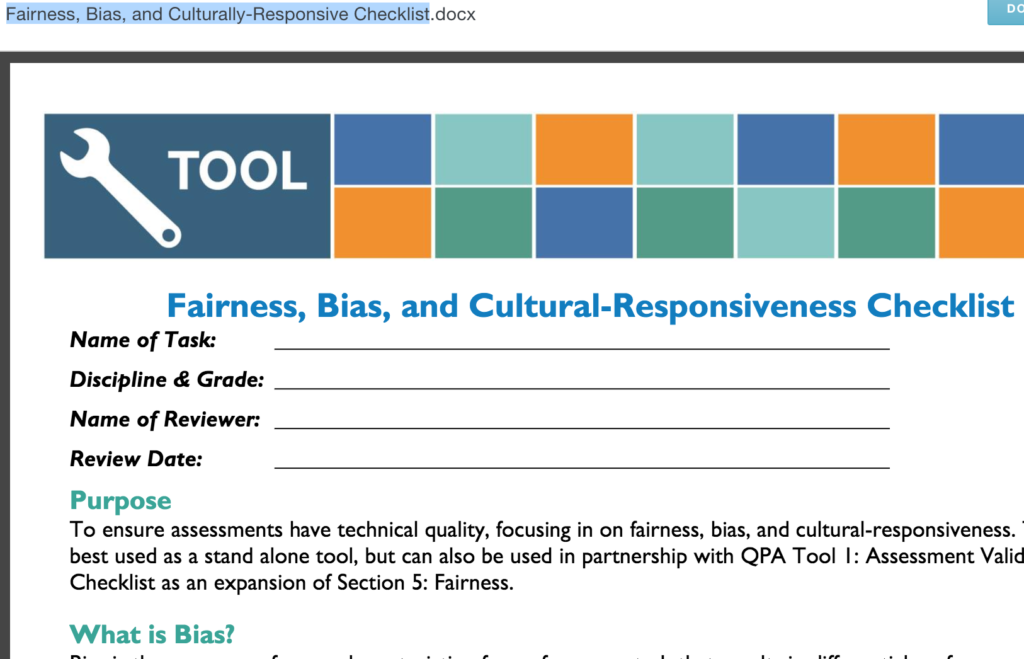
This resource features two tools from the Center for Collaborative Education (CCE) which focus on culturally-responsive teaching practices. Both tools are practical and can be used by educators to examine their teaching practices and design lessons and performance tasks that are more accessible and engaging for students from all cultures. Culturally-Responsive Teaching Mindsets: Examples and… Read More ›
KQED Teach Online Courses
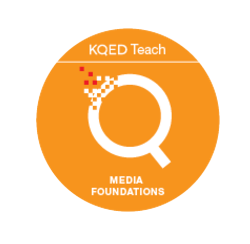
KQED Teach offers free online courses on a variety of digital products and tools that can be used to enhance learning. The courses begin with Foundations in Media which introduces the key digital media literacy concepts. Subsequent courses focus on one digital tool or product with overview modules/lessons, which should take between two and three hours to… Read More ›